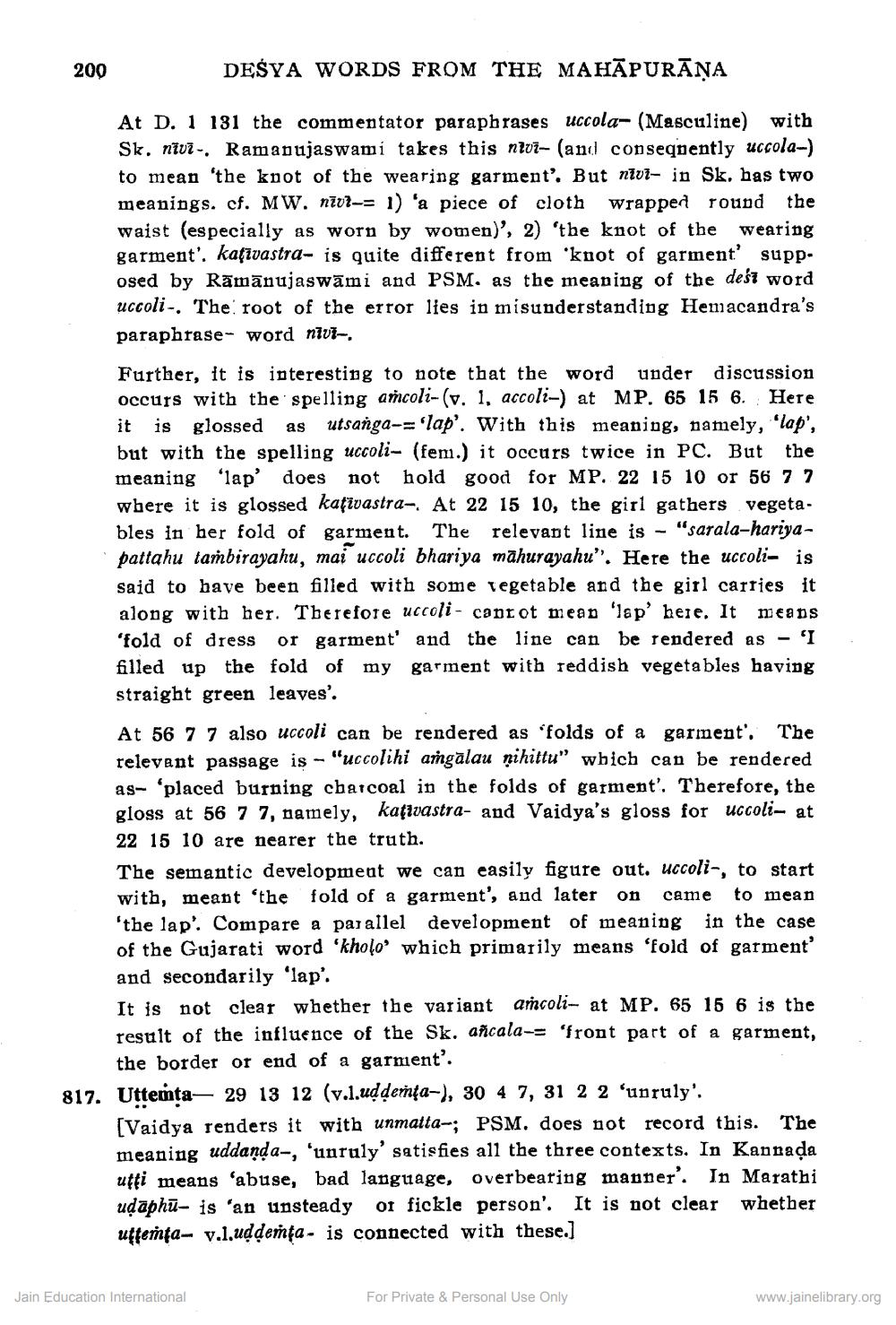________________
200
DEŚYA WORDS FROM THE MAHĀPURĀNA
At D. 1 131 the commentator paraphrases uccola- (Masculine) with Sk, nivi.. Ramanujaswami takes this niuz- (and conseqpently uccola-) to mean 'the knot of the wearing garment'. But nivz, in Sk, has two meanings. cf. MW. nīvi-= 1) 'a piece of cloth wrapped round the waist (especially as worn by women)', 2) 'the knot of the wearing garment'. katīvastra- is quite different from 'knot of garment supposed by Rāmānujaswāmi and PSM, as the meaning of the desi word uccoli-. The root of the error lies in misunderstanding Hemacandra's paraphrase- word niviFurther, it is interesting to note that the word under discussion occurs with the spelling añcoli-(v. 1, accoli-) at MP. 65 15 6. Here it is glossed as utsanga-='lap'. With this meaning, namely, 'lap', but with the spelling uccoli- (fem.) it occurs twice in PC. But the meaning "lap' does not hold good for MP. 22 15 10 or 56 77 where it is glossed kațivastra-. At 22 15 10, the girl gathers vegetables in her fold of garment. The relevant line is - "sarala-hariyapattahu tambirayahu, mai uccoli bhariya māhurayahu”. Here the uccoli- is said to have been filled with some vegetable and the girl carties it along with her. Therefore uccoli- caprot mear 'lap' here. It means 'fold of dress or garment' and the line can be rendered as - 'I filled up the fold of my garment with reddish vegetables having straight green leaves'.
At 56 7 7 also uccoli can be rendered as 'folds of a garment'. The relevant passage is - "uccolihi angalau nihittu” which can be rendered as- 'placed burning charcoal in the folds of garment'. Therefore, the gloss at 56 77, namely, kațivastra- and Vaidya's gloss for uccoli- at 22 15 10 are nearer the truth. The semantic development we can easily figure out. uccoli-, to start with, meant 'the fold of a garment', and later on came to mean 'the lap'. Compare a parallel development of meaning in the case of the Gujarati word 'kholo' which primarily means 'fold of garment' and secondarily 'lap'. It is not clear whether the variant aṁcoli- at MP. 65 15 6 is the result of the influence of the Sk, añcala-= 'front part of a garment,
the border or end of a garnient'. 817. Uttemta— 29 13 12 (v.l.ud deta-), 30 4 7, 31 2 2 'unruly'.
[Vaidya renders it with unmatta-; PSM. does not record this. The meaning uddanda-, 'unruly' satisfies all the three contexts. In Kannada utti means "abuse, bad language, overbearing manner'. In Marathi udaphū- is 'an unsteady or fickle person'. It is not clear whether utfennta- v.1.uddenta - is connected with these.]
Jain Education International
For Private & Personal Use Only
www.jainelibrary.org




